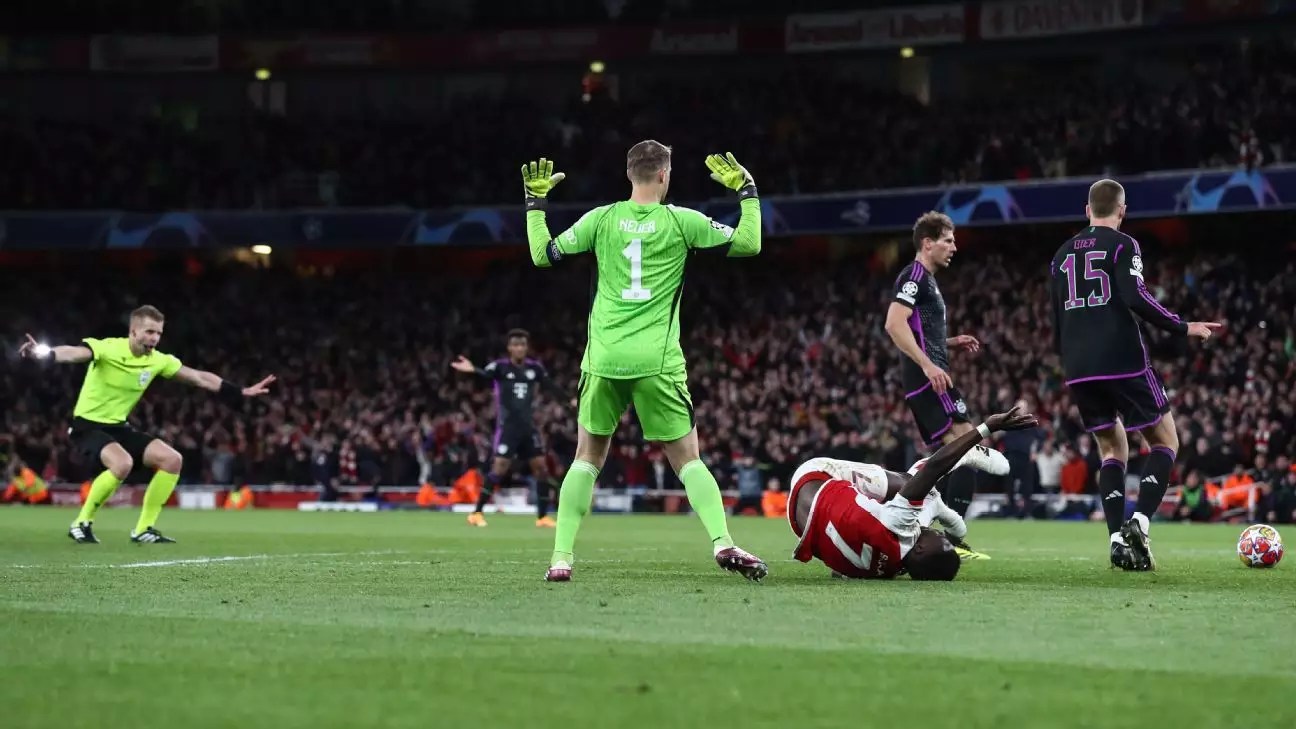The Video Assistant Referee (VAR) system has become a hot topic of debate in European football, with controversies arising every week. This technology is also heavily present in the Champions League, influencing key decisions that can make or break a team’s chances. But how are these decisions actually made, and are they always correct?
In a recent quarterfinal match between Arsenal and Bayern Munich, three high-profile incidents stood out. The first incident involved a potential penalty claim by Bukayo Saka against Bayern goalkeeper Manuel Neuer. Saka went down in injury-time, but referee Glenn Nyberg waved away the appeals. The VAR review concluded that Saka initiated the contact, leading to the decision of no penalty. This raises questions about the interpretation of contact and player behavior in the penalty area.
Another incident during the same match occurred when Arsenal’s goalkeeper David Raya passed the ball to Gabriel, who picked it up inside his own area. This action could have resulted in a handball and a penalty against Arsenal. However, the VAR review determined that Raya intended to restart play and did not warrant a penalty. This decision sparked debates about the expectations of referees in such scenarios and the spirit of the game.
Lastly, there was a moment involving Harry Kane and Gabriel, where the striker was booked for backing into the Arsenal defender. Some argued that Kane’s actions could have warranted a red card for violent conduct. The VAR review, however, concluded that there was no clear intent of elbowing from Kane, leading to the decision of no red card. This incident sheds light on the complexities of determining deliberate aggression on the field.
These incidents reflect the intricate nature of VAR decisions in the Champions League. While the technology aims to provide fairness and accuracy in officiating, it can sometimes lead to subjective interpretations and contentious outcomes. The balance between adhering to protocol and maintaining the essence of the game remains a challenge for both referees and VAR officials.
As football continues to evolve with the integration of technology, there are valuable lessons to be learned from the VAR controversies in the Champions League. Clarity in decision-making, consistency in application, and a deep understanding of the game’s spirit are essential for the successful implementation of VAR. It is crucial for officials to maintain a balance between upholding the rules and preserving the integrity and excitement of the sport.
The VAR system in the Champions League poses both opportunities and challenges for the future of football officiating. While controversies may arise, they provide valuable insights into the complexities of decision-making in the modern game. As football fans, players, and officials navigate the realm of VAR, it is essential to reflect on the impact of technology on the beautiful game and strive for a harmonious balance between innovation and tradition.


Leave a Reply